Preview: Beyond the Hype - Exploring AI Use Cases that are Delivering Real Business Value


This article is an excerpt from Beyond the Hype - Exploring AI Use Cases that are Delivering Real Business Value, an ebook exploring the results of Appsmith's recent survey of IT and engineering teams.
Separating value from hype
There’s no question that artificial intelligence (AI) was a primary topic of technology conversations in 2023. OpenAI’s ChatGPT became the fastest-growing consumer application of all time. AI startups like Mistral raised enormous funding rounds at huge early-stage valuations. And technology companies of all stripes rushed to incorporate AI features into their product offerings.
As with any hype cycle, AI certainly has outlandish expectations. But there is also a clear promise of business value. As a technology company, we’re deeply interested in the potential of AI, and as a low-code development company, we want to help organizations realize that potential in the applications, tools, and automated business processes that they develop.
The key is to understand business value and separate it from hype. To explore how AI is being adopted within businesses and identify where they’re seeing the biggest returns, we surveyed 140 technology professionals (IT and engineering) across the Appsmith community and businesses in North America. The primary goal of the study was to inform our product roadmap and make sure we’re working on features that will support the highest-value AI use cases. However, the results were interesting enough that we decided to share them in this ebook as well.
Survey demographics
As the previous section noted, the survey respondents were a mix of North American businesses and global members of the Appsmith community. Technology (hardware, internet, and software) represented the largest industry segment, but respondents work in organizations of all sizes across 17 industries.
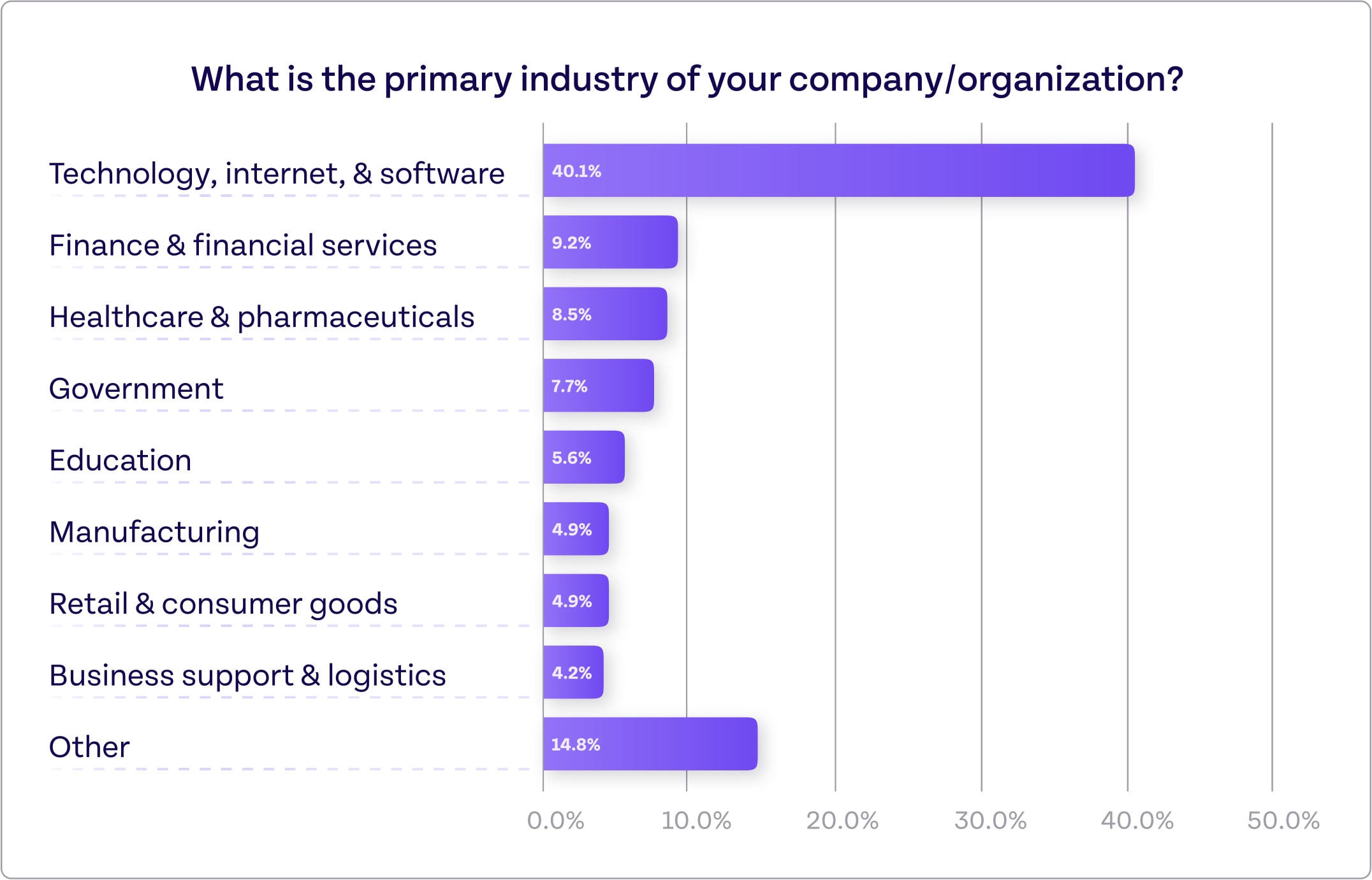
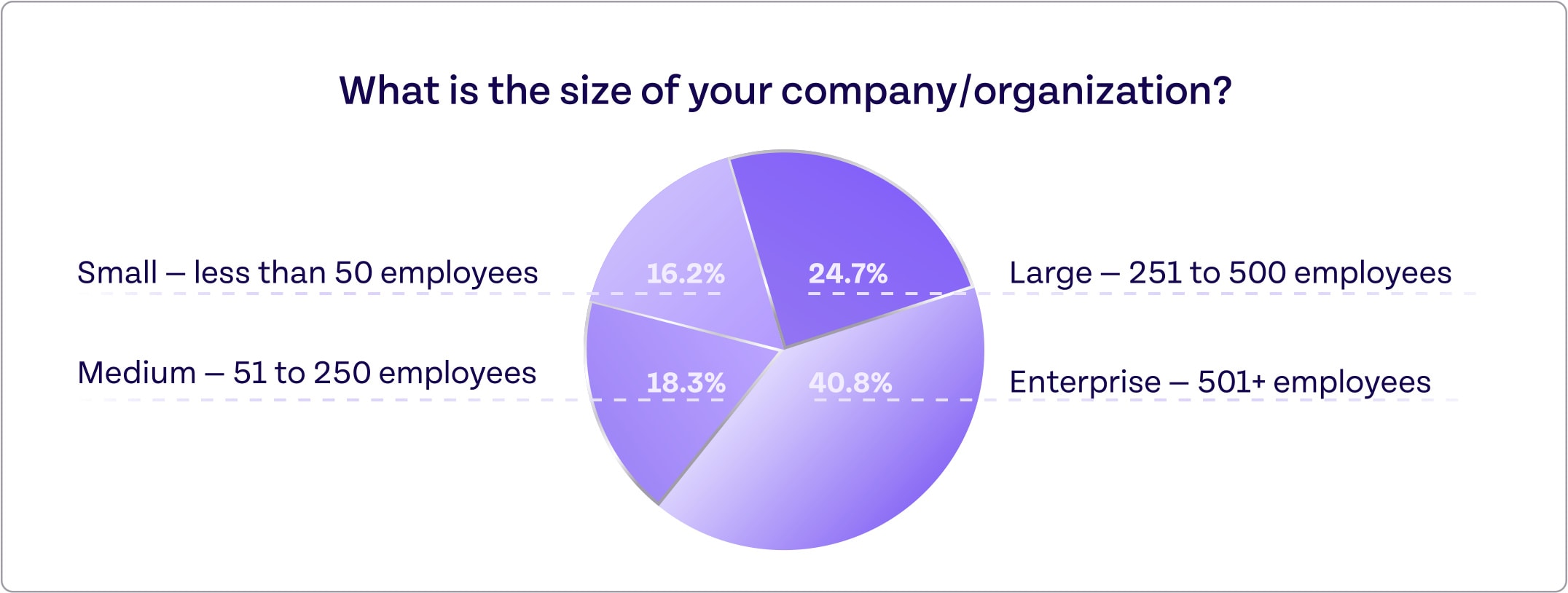
Respondents were almost exclusively in technology roles, either IT or engineering/ R&D teams, and ranged in seniority from executives to individual contributors.
AI access and adoption in the workplace
AI tools are definitely not just a consumer phenomenon. Survey respondents reported broad adoption and usage of AI across their workplaces — especially with commercial offerings such as ChatGPT or GitHub Copilot. 77% of respondents indicated that they have access to one or more of these tools in their workplace.
Adoption of private or proprietary AI tools such as internal or self-hosted large language models (LLMs), fine-tuned LLMs, or prompt directories was much lower. Only 46% of respondents reported that they had access to or used these types of tools. Across industries, financial services and business support/logistics companies reported the highest AI adoption/access (90+%) within their businesses while retail and government reported the lowest (<50%).
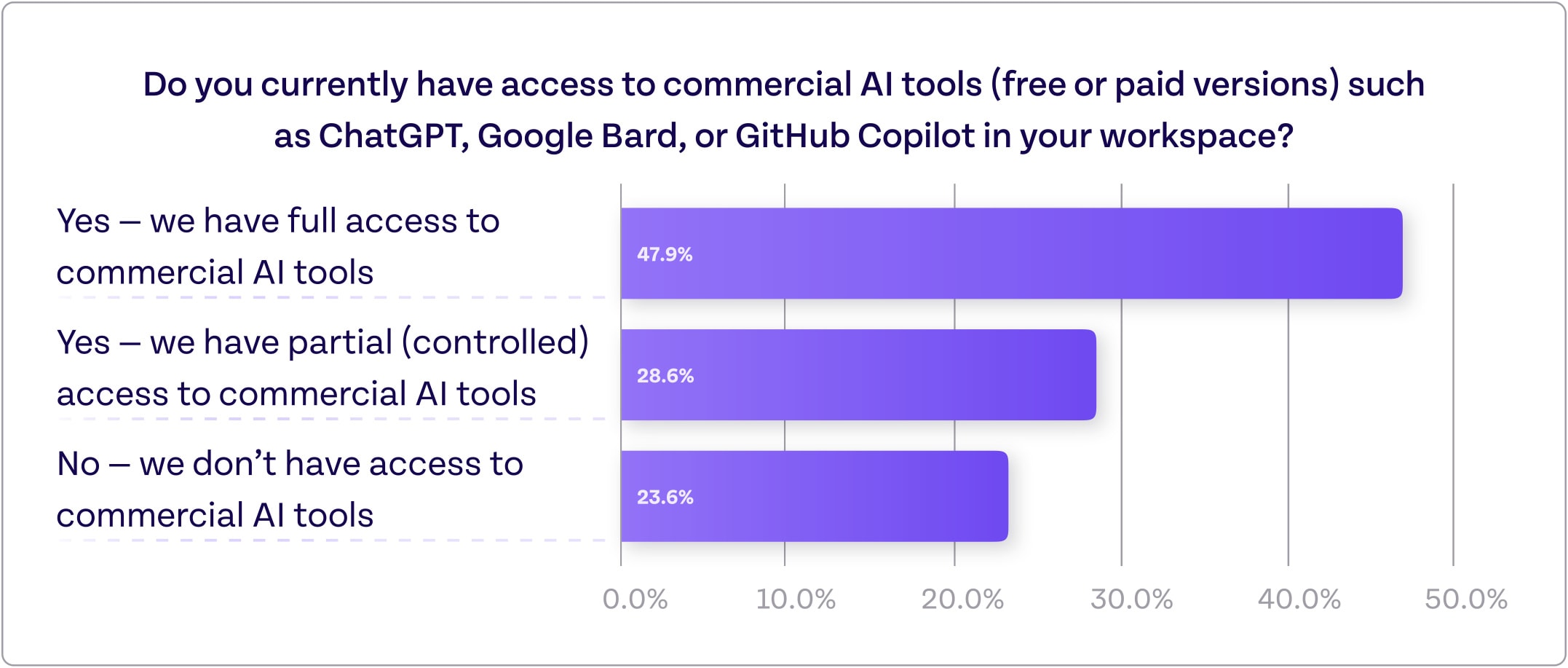
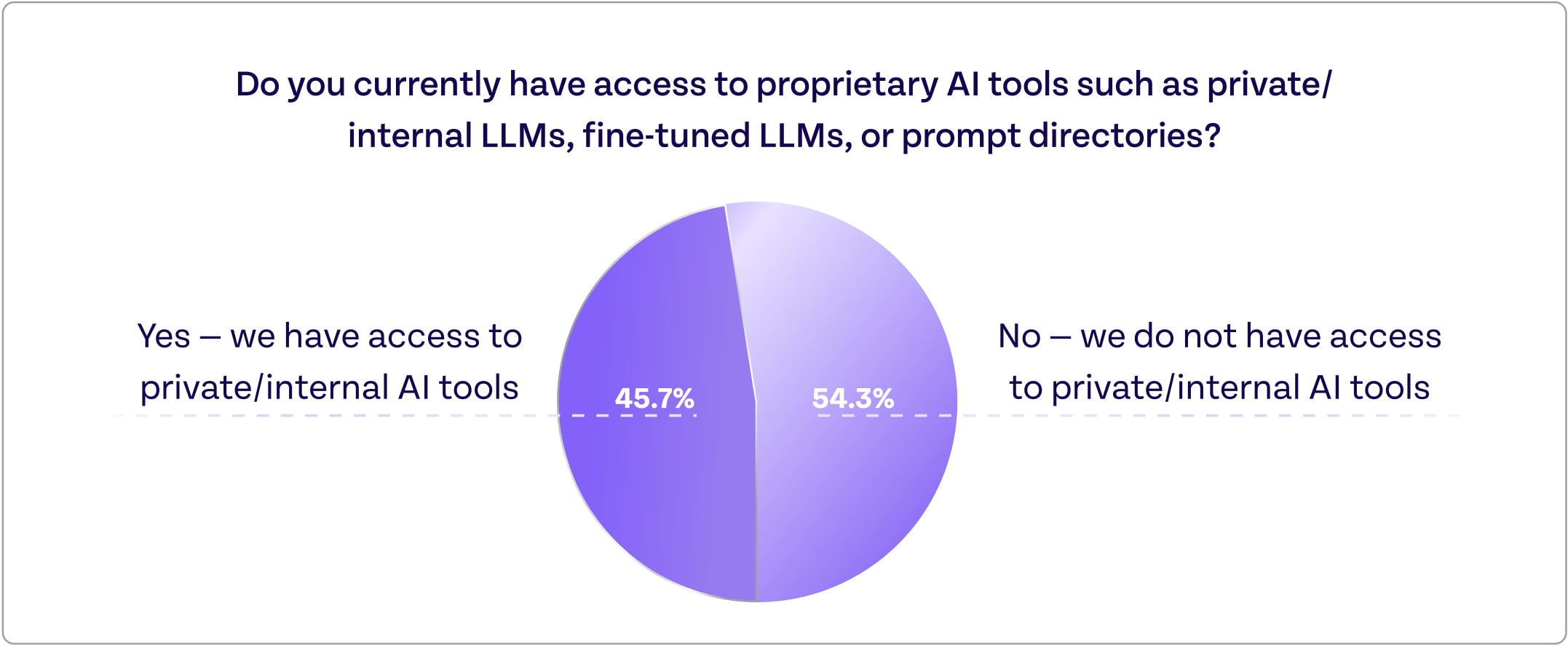
The difference between commercial and private adoption is likely a question of implementation. It seems likely that businesses would prefer to have their teams using private AI tools rather than public ones, but simply haven’t fully implemented these solutions. Data and data security remain major concerns. 41% of respondents reported that data security was the primary concern or blocker that prevented their company from providing access to AI tools.
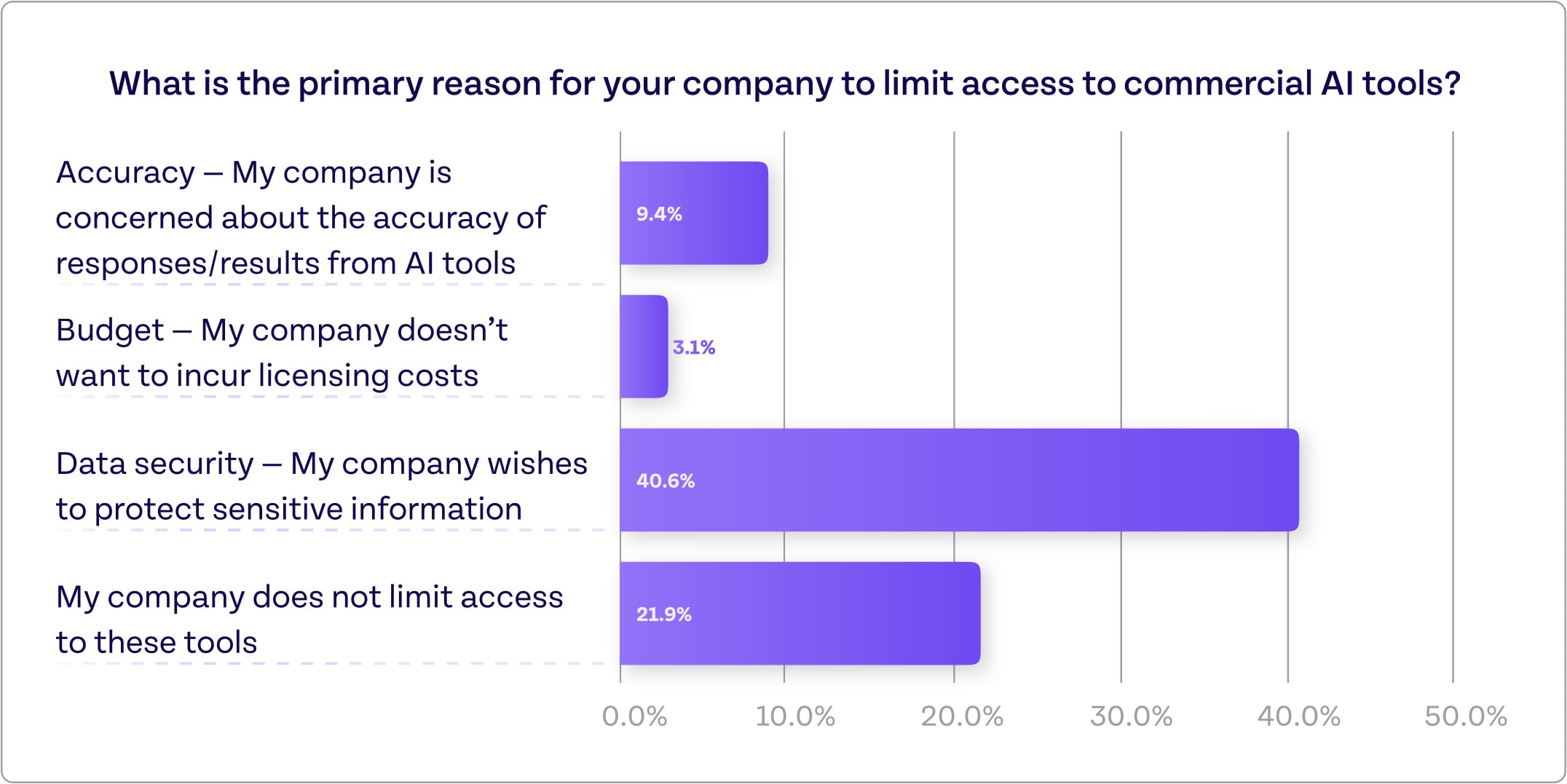
While a large majority of teams have access to AI tools, there is a significant spread in usage across job levels. Respondents in senior management roles were much more likely to be heavy users of AI tools than those in individual contributor roles. Over 30% of executives reported using AI tools daily while only 13% of individual contributors did.
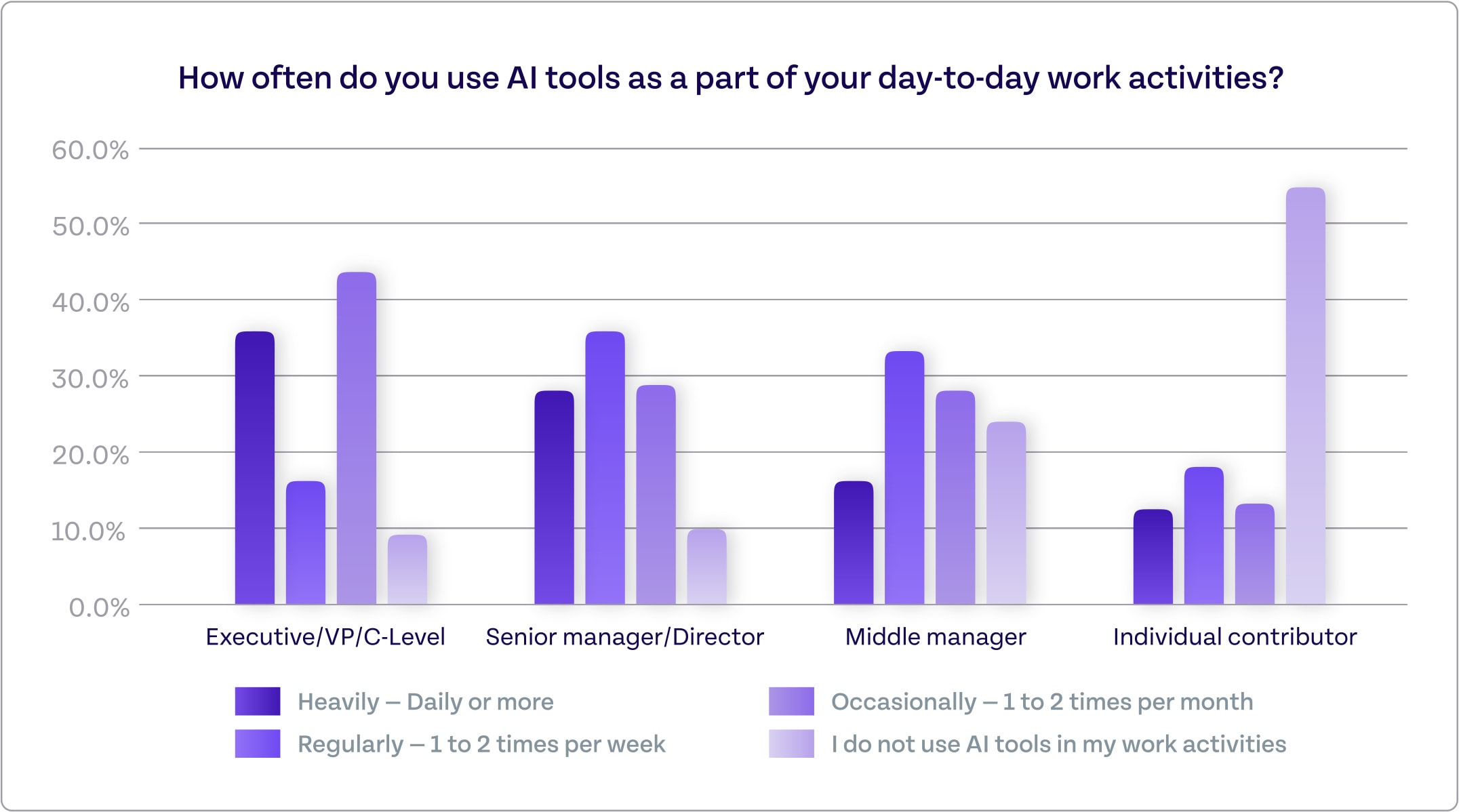
We didn’t capture precisely why this spread in usage is occurring, but it’s likely that the benefits of AI tools are realized more readily by people in leadership roles. Time savings and productivity gains are the biggest personal benefits that respondents reported seeing from AI tools. These benefits are perhaps more relevant and valuable to time-constrained managers.
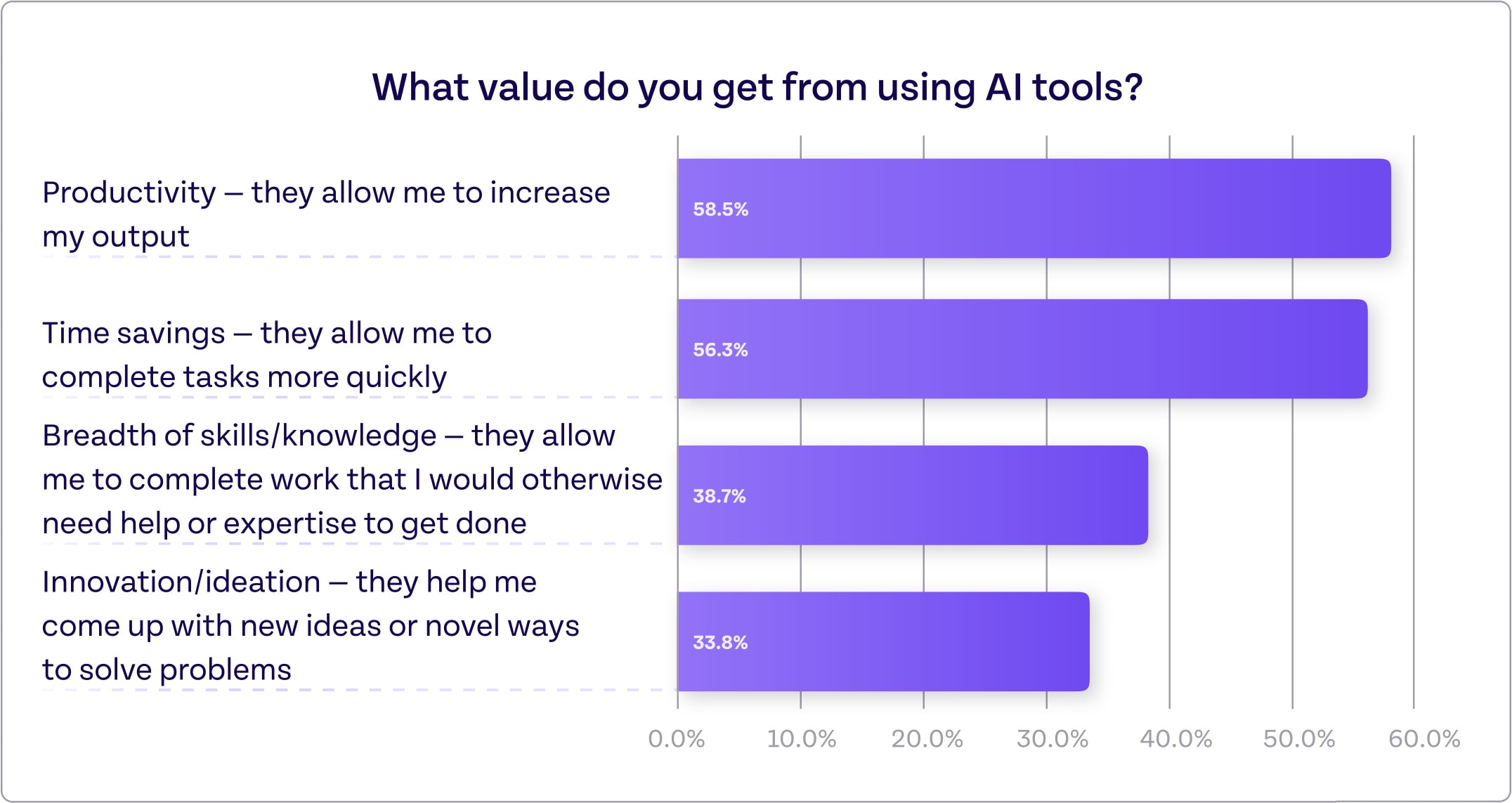
Integrating AI into company tools, processes, and products
In addition to individual employee usage of AI technologies, we asked survey respondents about how their company is building AI solutions — integrating AI capabilities into broader solutions like products, internal tools, and business processes. This information was particularly relevant to us as these are the same types of solutions that Appsmith helps companies develop.
Beyond the hype - AI use cases that are delivering real business value
140 IT and development teams share how they’re integrating AI capabilities into their internal tools and business processes, and which ones are proving the highest returns.
Related Blog Posts



